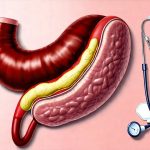Cholesterol is a waxy substance vital for building cells, but elevated levels can significantly increase the risk of heart disease – a leading cause of death globally. Managing cholesterol often involves lifestyle changes like diet and exercise, but emerging research suggests that our gut microbiome, and specifically probiotics, may play a surprising role in influencing cholesterol metabolism. Understanding this connection could open new avenues for supporting cardiovascular health, though it’s important to approach this topic with nuance and recognize the complexity of biological systems.
The human gut is home to trillions of microorganisms – bacteria, fungi, viruses, and others – collectively known as the gut microbiome. This intricate ecosystem isn’t just passively present; it actively participates in numerous bodily functions, including digestion, immunity, and even mental health. Increasingly, scientists are uncovering how this microbial community interacts with cholesterol levels, and probiotics, live microorganisms intended to benefit the host when consumed in adequate amounts, are at the center of much of this investigation.
The Gut Microbiome & Cholesterol Metabolism
The gut microbiome’s influence on cholesterol stems from several key mechanisms. Certain bacteria can directly metabolize bile acids – compounds produced by the liver that aid in fat digestion and absorption. This metabolism impacts the enterohepatic circulation, the process where bile acids are recycled between the intestine and the liver. Disrupting this cycle through microbial activity can lead to increased excretion of bile acids, forcing the liver to use cholesterol to create more, ultimately potentially lowering blood cholesterol levels.
Furthermore, some gut bacteria can also convert cholesterol into coprostanol, a poorly absorbed sterol that’s eliminated from the body, further contributing to cholesterol reduction. The composition of your microbiome dictates how effectively these processes occur, making it a crucial factor in overall cholesterol regulation.
Probiotics: Potential Mechanisms of Action
Probiotic strains aren’t created equal; their impact on cholesterol varies significantly depending on the species and strain used. While research is ongoing, several potential mechanisms explain how probiotics might influence cholesterol levels. These include modulating bile acid metabolism as mentioned above, reducing cholesterol absorption in the gut, and potentially even directly binding to cholesterol to prevent its absorption.
Specific Probiotic Strains & Research Findings
Numerous studies have investigated specific probiotic strains and their effects on cholesterol. Lactobacillus reuteri has shown promising results in some trials, demonstrating a reduction in LDL (“bad”) cholesterol levels. Similarly, certain strains of Bifidobacterium, like Bifidobacterium longum, have been associated with decreased total and LDL cholesterol. However, it’s vital to note that these findings aren’t universal, and the effectiveness can depend on factors such as dosage, duration of supplementation, and individual gut microbiome composition.
It is also important to acknowledge that many studies are relatively small or haven’t demonstrated consistent results across all populations. Larger, well-designed clinical trials are needed to confirm these initial findings and determine which strains offer the most significant benefits for cholesterol management. The observed effects are often modest, suggesting probiotics aren’t a standalone solution but rather potentially supportive component of a broader heart-healthy lifestyle.
The Role of Bile Salt Hydrolase (BSH) Activity
A key enzyme in bile acid metabolism is bile salt hydrolase (BSH). Certain probiotic strains possess BSH activity, meaning they can break down conjugated bile acids into unconjugated forms. This process reduces the reabsorption of bile acids, leading to increased fecal excretion and prompting the liver to utilize more cholesterol for bile acid synthesis.
The degree of BSH activity varies considerably among different probiotic species and strains. Lactobacillus plantarum is known for its relatively high BSH activity, and research suggests it could contribute to lower cholesterol levels through this mechanism. However, simply having a strain with BSH activity doesn’t guarantee significant cholesterol reduction; the overall gut environment and interaction with other microbes also play crucial roles.
Considerations & Future Research Directions
The relationship between probiotics and cholesterol is complex and still under investigation. Factors like individual differences in gut microbiome composition, diet, genetics, and lifestyle all influence how someone responds to probiotic supplementation. Furthermore, many studies use different methodologies and outcome measures, making it difficult to compare results across various trials.
Future research should focus on identifying specific probiotic strains that consistently demonstrate cholesterol-lowering effects in diverse populations. Investigating the interplay between probiotics, diet (particularly fiber intake), and other gut microbes will also be crucial for understanding how to optimize their impact on cardiovascular health. Personalized approaches – tailoring probiotic recommendations based on an individual’s microbiome profile – may ultimately prove more effective than one-size-fits-all interventions.


















